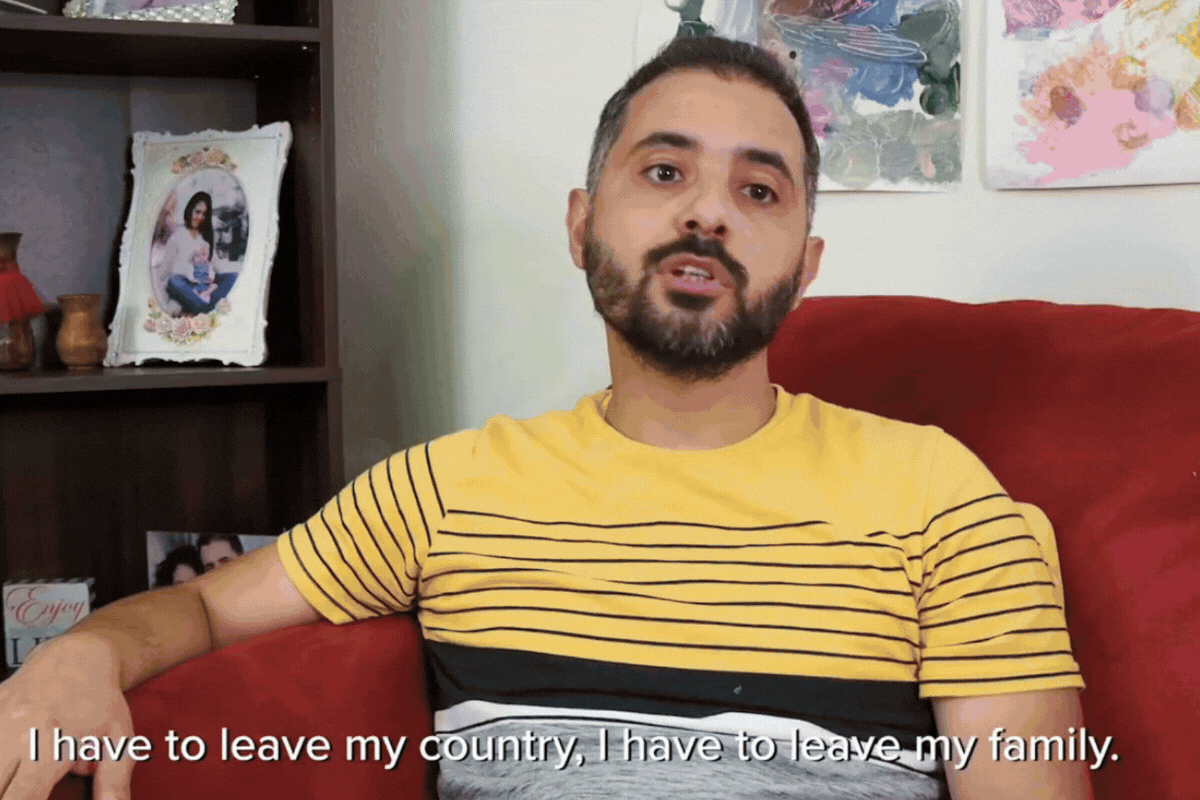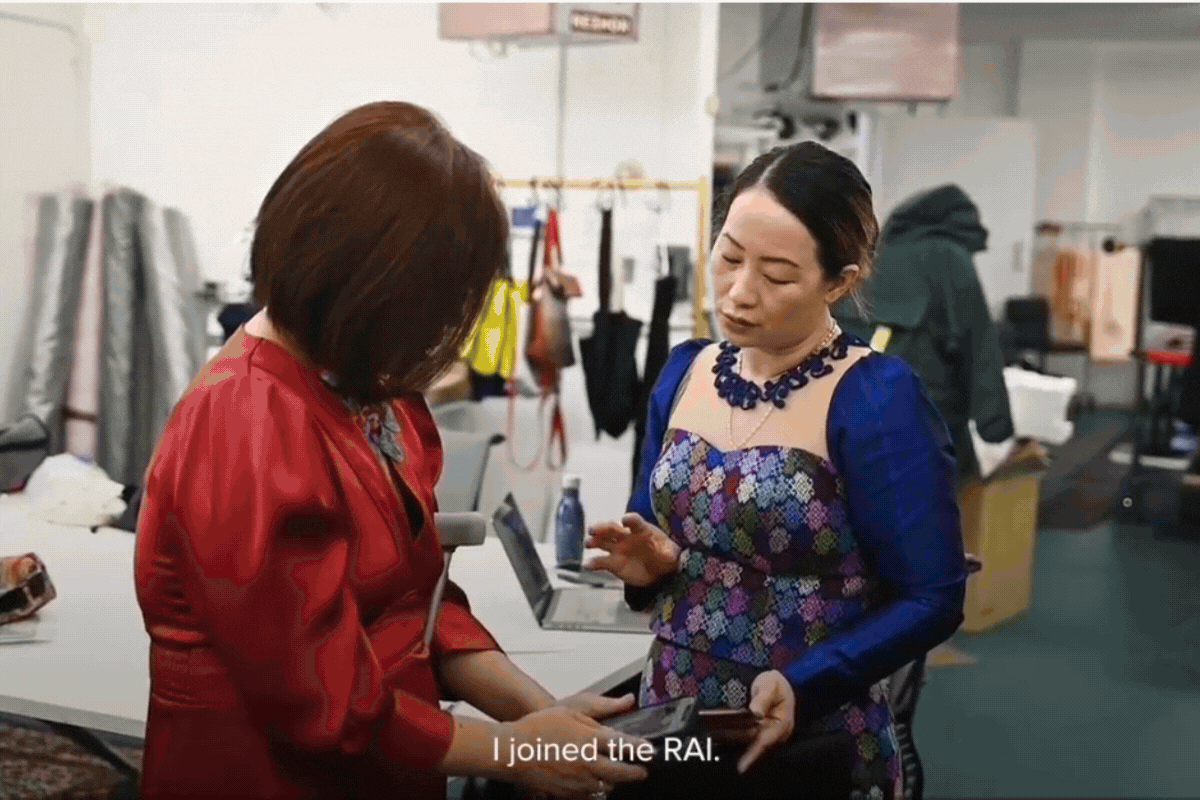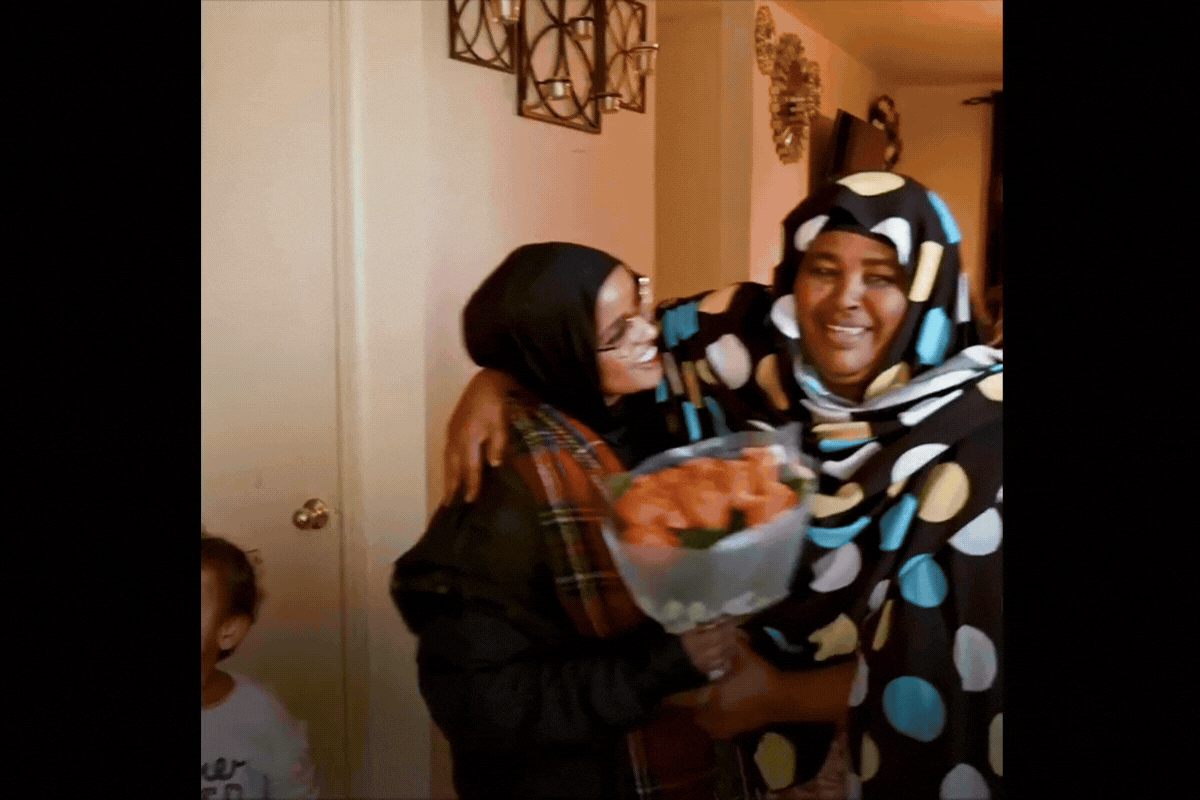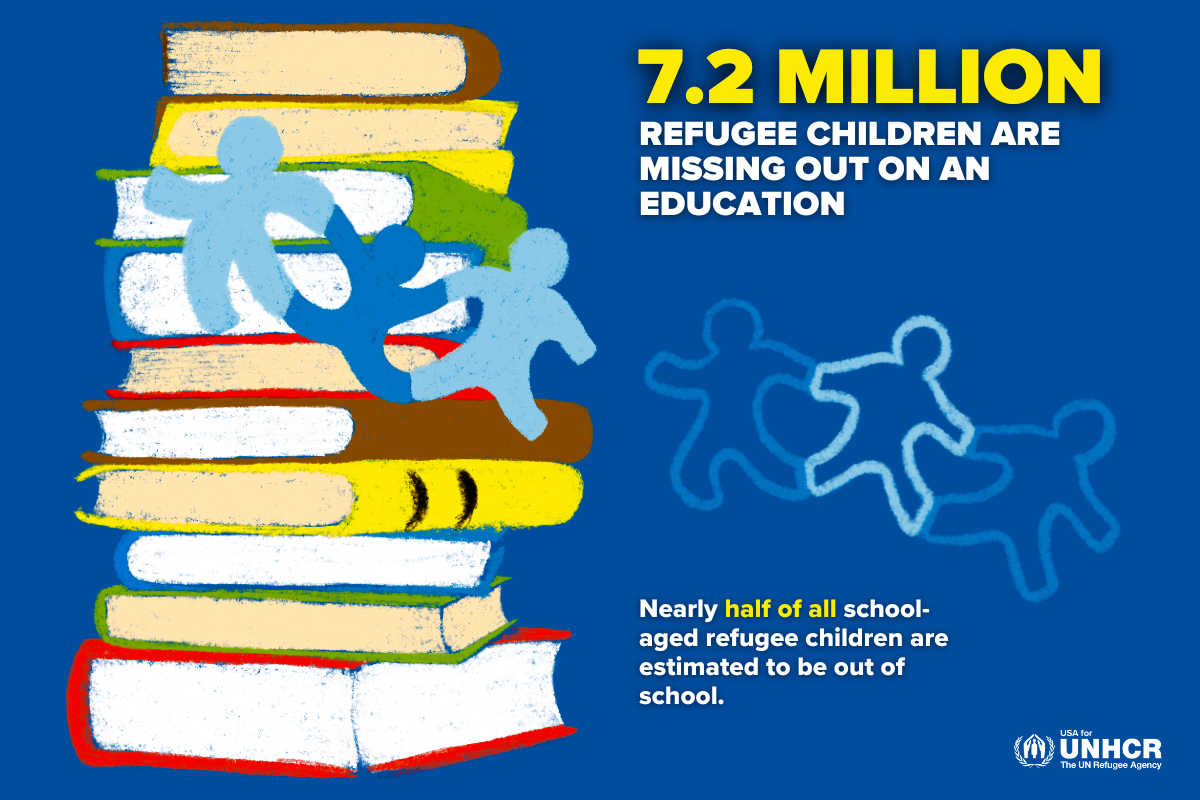Myths and facts about refugees in the United States
Since 1975, the United States has been a leading country in refugee resettlement, welcoming nearly 3.7 million refugees. Resettled refugees and their families are an integral part of American society, enriching communities across the nation with their valuable skills and diverse cultures. When given a seat at the table, they’ve proven they can make important contributions and leave a positive mark on their communities and beyond.
Despite the United States’ long history of resettlement, misconceptions about refugees persist. Debunking these myths is a critical first step to fostering a more welcoming, inclusive and safe environment for refugees to call home.
Check out these four common refugee myths and hear the truth from resettled refugees themselves.
1. Myth: Refugees willingly leave their home countries to find a better place to live
Fact: Refugees are forced to flee their homes to escape war, violence and persecution. They do not have a choice and are forced to make the difficult decision to leave behind the lives they once knew—often spending several years in refugee camps or settlements, not knowing what the future holds.

“...I found I have to leave my country. I have to leave my family. I have to leave everything behind,” says Alaa Alkarid, reflecting on the moment he made the difficult decision to flee his home in Syria due to conflict.
A refugee is someone who was forced to flee violence, war or persecution, crossed a border to seek safety and requires international protection. Refugees are different from migrants because while refugees are forced to flee violence and persecution, migrants choose to move often to improve their lives through work opportunities, education, family reunification or other reasons.
2. Myth: Refugees don’t need to come to the United States
Fact: Resettlement is a lifesaving solution for the most vulnerable refugees, providing them a chance at safer and brighter futures.
“Where would I be today if I hadn’t been given a second chance? The honest answer is, I don’t know. What I do know is that the refugee resettlement program in the U.S. is life-changing,” says Abdallah Al-Obaidi, a former refugee from Iraq, reflecting on the power of resettlement for refugees like himself.

Resettlement is the transfer of refugees from a country of asylum to another country that has agreed to admit them and ultimately grant them a pathway to permanent residency. It is also a solution that guarantees refugees protection against refoulment, or forced return. While resettlement can be transformative for refugees, not everyone has the opportunity to be resettled. This can be due to country-specific resettlement quotas and the vetting process each resettlement country establishes. The final decision on whether or not a refugee will be resettled in a country is the discretion of the government of the country of resettlement. UNHCR estimates that only one percent of refugees will be resettled.
Thanks to resettlement, Abdallah is safe and thriving. Now a U.S. citizen, he is enrolled in medical school, aspiring to use his passion for medicine to help others. He also strives to use his voice and experiences to advocate for refugees, supporting those in his community and beyond.
“My hope for the future is to become a doctor and care for my patients, but I also want to be part of a movement that creates a system where no one feels left behind.”
3. Myth: Refugees are a burden on the U.S. economy
Fact: Resettled refugees like Julie, a former refugee from Myanmar and seamstress at the Refugee Artisan Initiative (RAI) in Seattle, are bringing their exceptional skills and making significant contributions to the local economy. They prove that with support and opportunities, refugees can have a lasting positive financial impact on their new communities.
According to a report from the American Immigration Council, resettled refugees contribute to the economy as taxpayers and earners, and have higher rates of entrepreneurship than other immigrants. In addition, refugees fuel the economy through consumer spending. In 2022, refugees held a spending power of nearly $82 billion.
Additionally, refugees are more likely to be entrepreneurs and job-creators. In fact, 13 percent of refugees in the U.S. create businesses—a higher percentage than all immigrants (11 percent) or of the native-born U.S. population (9 percent).

Thanks to the support of RAI, a local Seattle nonprofit whose mission is to create a safe, welcoming, and inclusive space for newcomers to thrive, refugee women like Julie are equipped with the necessary tools to continue to grow their technical skills, develop entrepreneurship skills and build livelihood opportunities to support their families.
“I'm a single mom. I have three kids,” Julie shares. “I [was] working, but [it was] too difficult sometimes if my babies are sick. So, I joined RAI. I [can] stay at home and I’m sewing at home. It's better for me.”
Through the program's support, Julie is now a thriving entrepreneur. She designs and sews beautiful Kachin dresses and contributes to the economy of her new community.
4. Myth: It’s hard to find something in common with refugees
Fact: Anyone can be a refugee. They are parents, children, doctors, lawyers, teachers, and the only thing that differentiates them from most Americans is that they were forced to flee their homes and completely restart their lives.
“Refugees are human, like everyone. We have our families, we have our ambitions, we have our dreams… we are looking for safety, like everyone. We are looking to have social connection with our neighbors. We want to move forward with our families,” says Alaa.
For Alaa and countless other refugees like Halima Hamud, a refugee from Somalia, resettling in the United States has also provided an opportunity for them to discover new interests and passions.

“I know the power that I bring to the table and the wisdom that I bring to the table because of my experiences as a refugee.”
Through her experience resettling in the U.S. and adjusting to her new community, Halima developed a passion for advocacy and helping others. Her journey has inspired her to help other young refugee women and break down barriers to representation in spaces that are not always welcoming to people with her background.
“Refugees are very resilient people, very motivated, and they need the right community to support them along their paths… I am determined to use my education to make a meaningful difference in the world,” Halima shares.
How to help…
UNHCR, the UN Refugee Agency supports refugees who have been forced to flee violence, war and persecution. Our donors help refugees in their greatest time of need, and their support builds awareness for resettled refugees living in the U.S. Refugees like Alaa, Abdallah, Julie and Halima have woven themselves into the fabric of American society and are making lasting contributions to their communities. With your help, more refugees will have the opportunity to build a peaceful life and give their families a bright future.


